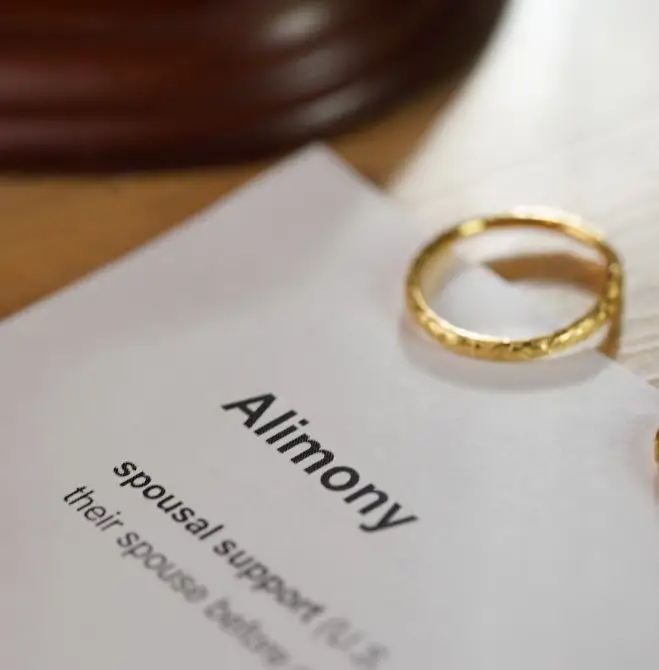Spousal Support & Alimony in North Carolina
If financial stability is a priority during and after your divorce, we encourage you to speak with a family law attorney today. They’ll review the datails of your case and help you negotiate spousal support or alimony.
What is Alimony in North Carolina?
Alimony is money paid from the supporting spouse to the dependent spouse after a divorce. The money is meant to ease the transition and to help the dependent spouse keep the standard of living they enjoyed during the marriage. The amount and duration of alimony depends on a variety of factors. There is no “set formula” for alimony, but rather calculations that are generally accepted by the court to be reasonable amounts. For this reason, it is important to hire a knowledgeable and experienced family law attorney.
A trusted family law attorney explains how they are alimony and spousal support are similar and different.
As well as the factors the judge will take into consideration to determine the amount to be paid.
Post-Separation Support vs Alimony
There are two types of spousal support that a dependent spouse may receive – post-separation support and alimony. Post-separation support is temporary. It is designed to provide for the dependent spouse’s support until a final order of alimony is created. An award of post-separation support automatically ceases upon the entry of an award of permanent alimony.
Alimony awarded by the Court to the dependent spouse can be paid either in a lump sum or in payments over a specified (or indefinite) period of time. Despite the use of the word “permanent,” an award of permanent alimony does not necessarily last forever. The Court has the discretion to order payment of permanent alimony for only a limited time period.
The Dependent Spouse vs Supporting Spouse
The court will award spousal support only to the dependent spouse. Dependency is based on whether he or she earns sufficient income to maintain the standard of living enjoyed during the marriage because of the loss of the other spouse’s income.

15 Factors the Court Considers in Deciding Alimony
There are several factors that the court will consider in deciding the amount and duration of spousal support and alimony.
These factors include:
The Court has wide discretion to determine the amount and duration of alimony, which makes it difficult to predict with accuracy.
Although the Court’s discretion is broad, the Court must strive to be fair to both parties. If a Judge finds that the supporting spouse is deliberately depressing his or her income, it can base an award on capacity to earn rather than actual earnings.
This video dives into the key factors that determine alimony awards. We’ll explore how a family law expert analyzes a supporting spouse’s finances, including income, expenses, and potential strategies to navigate alimony obligations.
Alimony Based on Marital Misconduct
While North Carolina does not take marital misconduct into consideration for divorce proceedings, it can play a big role in alimony calculations. Marital misconduct within a marriage can be an automatic approval or denial of alimony for the dependent or supporting spouse. Consult with your family law attorney to find out how marital misconduct can affect your spousal support case.
Marital misconduct can include any of the following actions during the marriage or prior to the date of separation:
- Illicit sexual behavior.
- Involuntary separation of the spouses in consequence of a criminal act committed prior to the proceeding in which alimony is sought;
- Abandonment of the other spouse;
- Malicious turning out-of-doors of the other spouse;
- Cruel or barbarous treatment endangering the life of the other spouse;
- Indignities rendering the condition of the other spouse intolerable and life burdensome;
- Reckless spending of the income of either party, or the destruction, waste, diversion, or concealment of assets;
- Excessive use of alcohol or drugs so as to render the condition of the other spouse intolerable and life burdensome;
- Willful failure to provide necessary subsistence according to one’s means and condition so as to render the condition of the other spouse intolerable and life burdensome.
How long does alimony last in North Carolina?
Alimony in North Carolina does not have to be indefinite. The length of time that a supporting spouse is required to pay alimony usually depends on the factors that determine alimony eligibility. In most cases, the court will award alimony for the duration of half the length of the marriage. For example, if a couple was married for 10 years, the dependent spouse would get 5 years of alimony. But, the court may deviate from this at any time depending on the circumstances of each spouse.
Alimony payments will stop on the date that is written in the court order. Otherwise, payments will stop when one of the following events occur:
- When the receiving spouse gets remarried;
- When the receiving spouse moves in with someone in a marriage-like relationship;
- When either spouse passes away.

How is alimony paid?
Alimony payments can be made in a couple of different ways. The supporting spouse may decide to pay the alimony in a lump sum payment. Or, they can choose to pay it in periodic payments or through income withholding. In addition, alimony can also be paid through a transfer of title or possession of personal property, and an interest in property, a security interest in or possession of real property. Alimony that is not paid as a lump sum can be modified by showing a “substantial change in circumstances.”
Negotiating Alimony in North Carolina
Don’t settle for less than you deserve and don’t pay more than you can afford. At Dummit Fradin, our family law attorneys will help you determine what is fair in your situation. They’ll carefully review the details of your divorce or separation agreement and help you negotiate the appropriate spousal support. Contact us today to speak with an attorney near you in Winston-Salem, Greensboro, or High Point.
